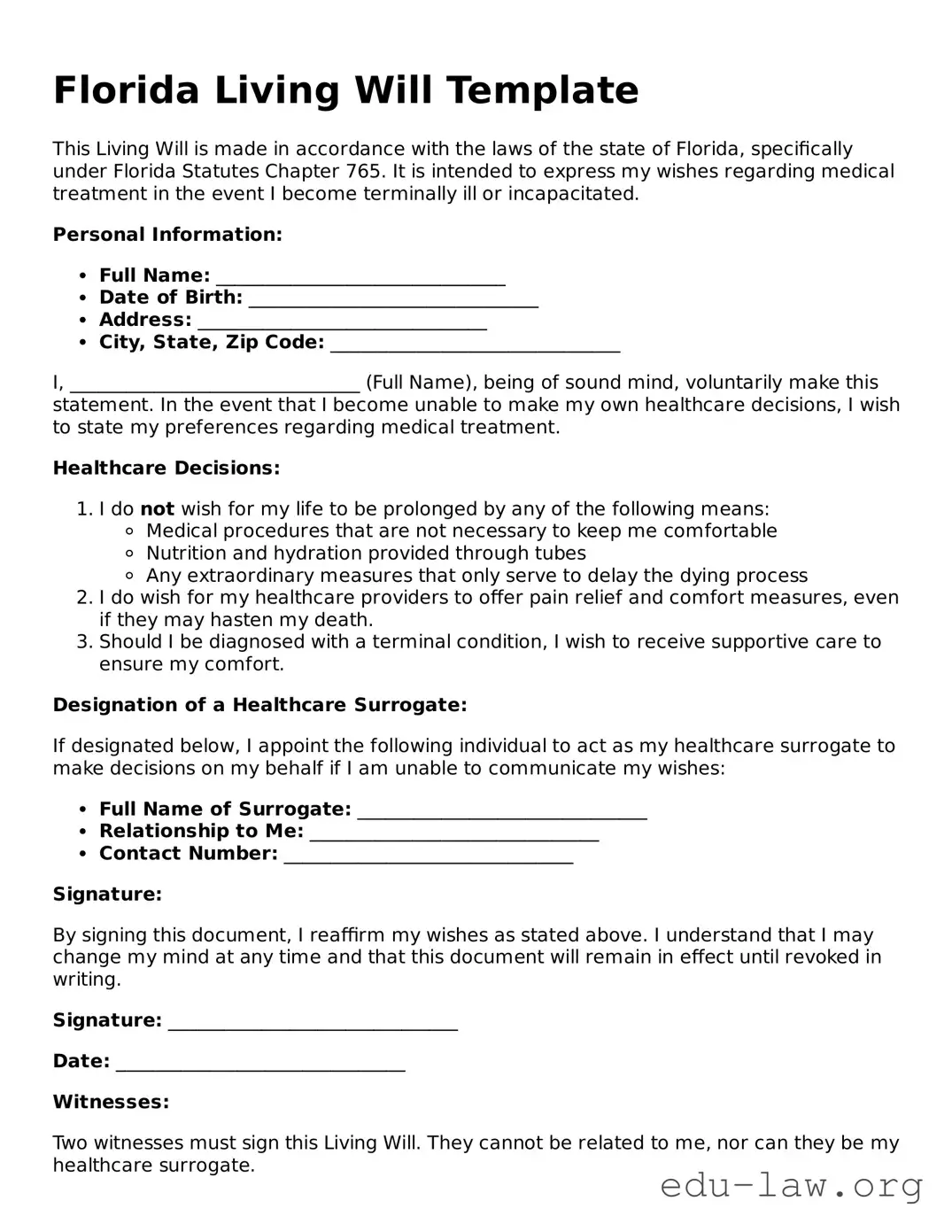Florida Living Will Template
This Living Will is made in accordance with the laws of the state of Florida, specifically under Florida Statutes Chapter 765. It is intended to express my wishes regarding medical treatment in the event I become terminally ill or incapacitated.
Personal Information:
- Full Name: _______________________________
- Date of Birth: _______________________________
- Address: _______________________________
- City, State, Zip Code: _______________________________
I, _______________________________ (Full Name), being of sound mind, voluntarily make this statement. In the event that I become unable to make my own healthcare decisions, I wish to state my preferences regarding medical treatment.
Healthcare Decisions:
- I do not wish for my life to be prolonged by any of the following means:
- Medical procedures that are not necessary to keep me comfortable
- Nutrition and hydration provided through tubes
- Any extraordinary measures that only serve to delay the dying process
- I do wish for my healthcare providers to offer pain relief and comfort measures, even if they may hasten my death.
- Should I be diagnosed with a terminal condition, I wish to receive supportive care to ensure my comfort.
Designation of a Healthcare Surrogate:
If designated below, I appoint the following individual to act as my healthcare surrogate to make decisions on my behalf if I am unable to communicate my wishes:
- Full Name of Surrogate: _______________________________
- Relationship to Me: _______________________________
- Contact Number: _______________________________
Signature:
By signing this document, I reaffirm my wishes as stated above. I understand that I may change my mind at any time and that this document will remain in effect until revoked in writing.
Signature: _______________________________
Date: _______________________________
Witnesses:
Two witnesses must sign this Living Will. They cannot be related to me, nor can they be my healthcare surrogate.
- Witness 1 Signature: _______________________________ Date: _______________________________
- Witness 2 Signature: _______________________________ Date: _______________________________
